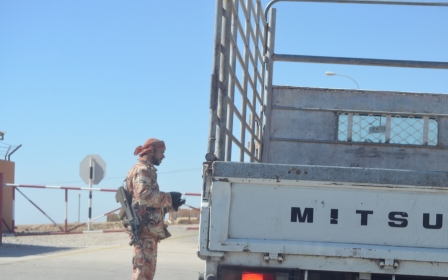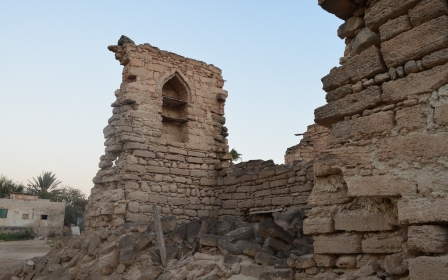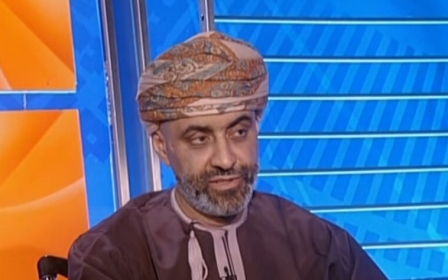Oman crackdown over criticism of plans to develop Dhofar camel-grazing area
Authorities in Oman have intensified a crackdown on critics of plans to remove camel herds in parts of Dhofar to make way for development in the sultanate's southern governorate.
Salem Ali al-Maashani, a poet, was arrested on Sunday night after calling for the release of environmental activist Dr Ahmed Issa Qatan, who was detained last month following comments on social media, rights groups said.
Amr Mussallam, a YouTube artist known as Amr Alhkli, was also detained on Sunday, the Omani Centre for Human Rights (OCHR) confirmed to Middle East Eye.
'The centre reiterates... that criticism of the decisions of the official authorities is not a crime'
- Omani Centre for Human Rights
The OCHR, which monitors human rights in the sultanate, criticised the recent crackdown.
“The centre reiterates... that criticism of the decisions of the official authorities is not a crime,” it said.
New MEE newsletter: Jerusalem Dispatch
Sign up to get the latest insights and analysis on Israel-Palestine, alongside Turkey Unpacked and other MEE newsletters
Qatan, a specialist in seawater desalination, was detained following his criticism of the governor of Dhofar’s announcement that camels will be prevented from grazing in parts of the Dhofar Plain in order to make way for housing development.
According to local reports received by the Gulf Centre for Human Rights (GCHR) and the Omani Association for Human Rights (OAHR), Qatan was arrested by the Internal Security Service (ISS) on Wednesday and brought before the public prosecution. He was investigated and charged with using social media in a way that would prejudice public order, the groups said.
The public prosecutor rejected bail and ordered Qatan’s detention until the first hearing of his trial, which has been set for 8 March, they added, although later clarified that he faces two hearings, the first on 3 March.
He is being held at the detention prison in Dhofar's capital, Salalah, the GCHR said.
The source of the authorities' ire appears to be a tweet by Qatan critical of the governor Sayyid Mohammed bin Sultan al-Busaidi's decision.
“If the decision remains, we must gather herds of camels in front of the world and we ask His Majesty the Sultan to get rid of camels or get rid of the inherited administration in the governor’s office, whose preoccupation remained the displacement of the rural population and the acquisition of Dhofar Plain,” he tweeted.
Qatan reportedly rejected the charges against him, which he said violated his right to freedom of expression, and denounced being interrogated without having access to a lawyer.
The governor of Dhofar last month announced plans to transfer authority over the Dhofar Plain to the Ministry of Housing and Urban Planning, which will allow the construction of housing complexes in the fertile plain.
Dhofar, with its ancient ruins and unique ecosystem, is protected as a Unesco World Heritage site and is renown for its Khareef monsoon season in the summer months which waters the plains.
'The ISS should end the policy of silencing voices and opinions, and targeting human rights defenders, which it has systematically followed in recent years'
- Rights groups
In a joint statement, the rights groups said: “Once again, GCHR and OAHR condemn the arrest of Dr Ahmed Issa Qatan, and protest against the two-week extension of his detention before his trial, which the two NGOs consider to be a violation of his basic rights to freely express his views and defend the environment in his governorate.
“The ISS should end the policy of silencing voices and opinions, and targeting human rights defenders, including internet activists, which it has systematically followed in recent years.”
In a recent broadcast interview, one of the affected camel owners and herders, Bakhit Salem Qatan, urged the governor’s office to respect herders and their livestock as a national asset, and said the governor had not discussed the matter with the local population before issuing his decision.
The herder added that the governor’s office was out of touch with the tribes of the region, and had not even informed members of the governorate’s municipal council of the decision.
Middle East Eye has approached the Omani embassy in London for comment.
Middle East Eye delivers independent and unrivalled coverage and analysis of the Middle East, North Africa and beyond. To learn more about republishing this content and the associated fees, please fill out this form. More about MEE can be found here.




